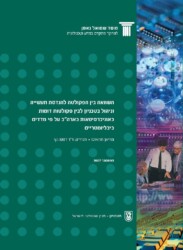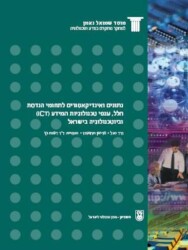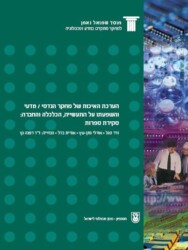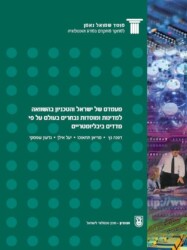The goal of this study, which was commissioned by the Technion and conducted at the S. Neaman Institute during 2005-2006, was to examine the level of engineering research at the Technion and at other Israeli universities in comparison to other countries, using objective tools. In addition, the study examined the methods which are being used for evaluating the impact that research has on the economy, industry, and society in Israel.
The study is divided into three parts. The first part examines the criteria and methods which can be used for the evaluation of the quality of engineering research at the Technion compared to what is done in this field in the world. The review covers the different dimensions which are used for the evaluation of applied/engineering research and basic/scientific research, the two main evaluation methods: peer review and bibliometrics, and a number of other indicators, as well as a review of the world universities rankings and the criteria and methods which they use. In addition, the literature review focuses on the evaluation of the research impact on the industry, economy and society, mainly through graduate training, knowledge and technology transfer, and mutual innovation processes between industry and the universities.
In the second part, bibliometric analyses were conducted on the basis of the ISI (Institute of Science Information, Philadelphia, USA) databases, in order to compare the scientific production of Israel with other countries in the world, and the scientific production of the Technion in relation to other institutes. The ISI databases we used include data on 180 countries and 200 institutes – mainly from Israel, USA, UK, and Canada. The comparisons were conducted in three groups of indices, and the countries and institutions were ranked according to them:
- Productivity indices- number of publications per capita at the country or number of publications at the institute.
- Index of priority of research in a field.
- Quality indices- the citation index.
The last part of the work focused on three fields of knowledge: ICT (Information and Communications Technologies), Biotechnology, and Aerospace Engineering. The data and indicators for these fields were presented. The development of each field was reviewed and trends were examined over the last few years in several indicators.
The results were summarized in a series of three publications.





